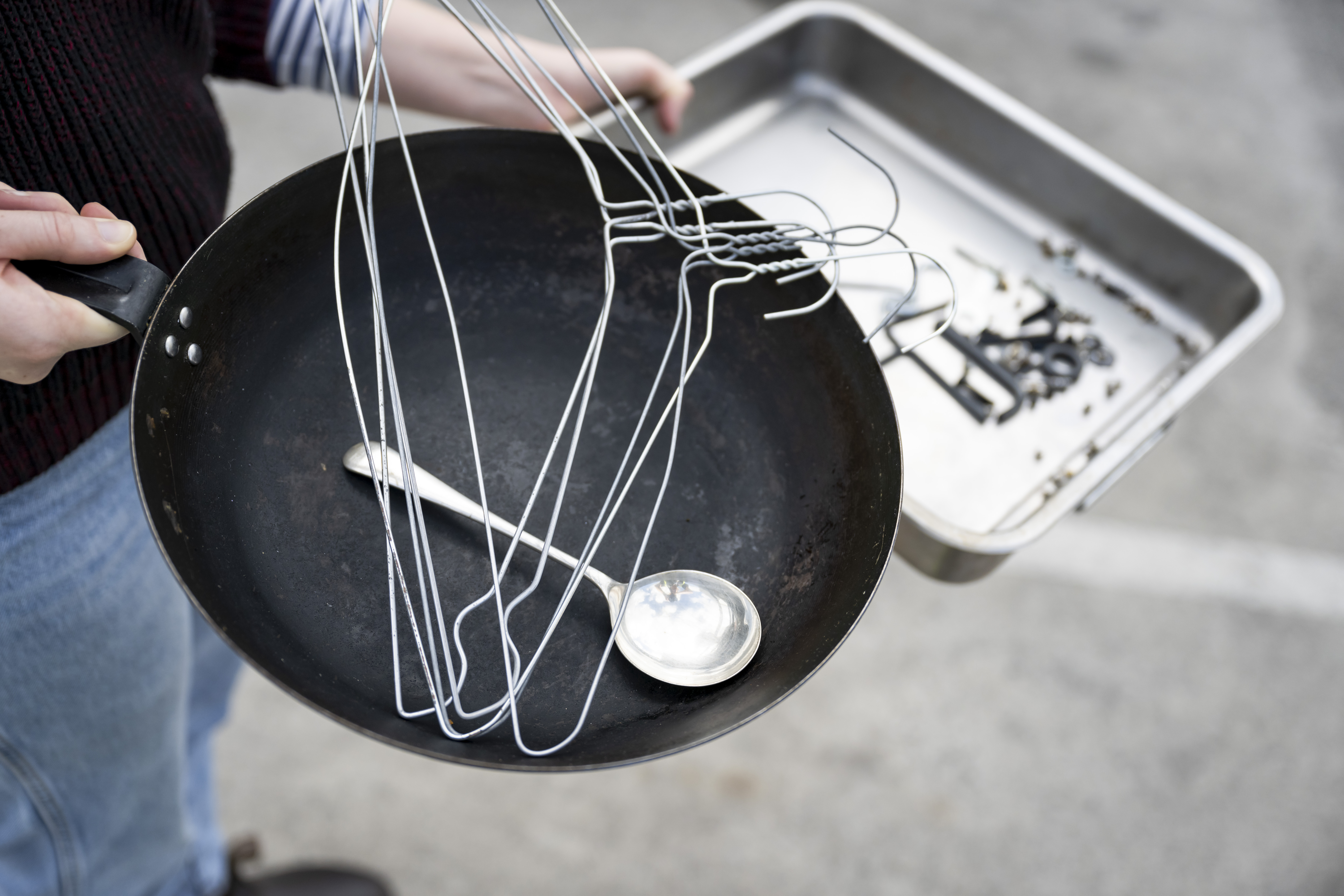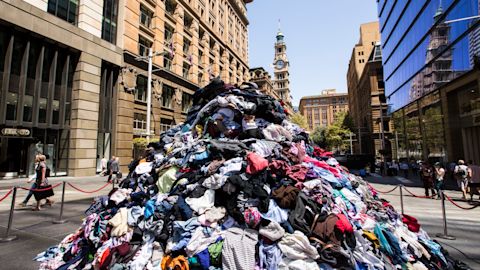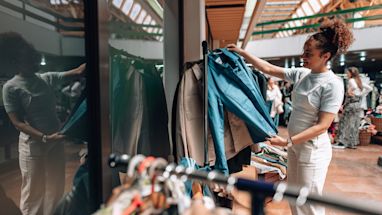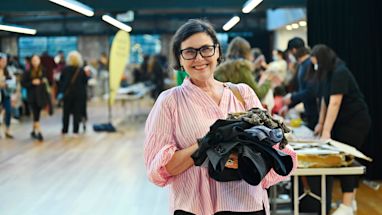There’s no denying it. We just don’t know what to do with our old clothes and other items around the home. Here are 5 common things residents get stuck on. They reveal the biggest recycling quandaries facing Sydneysiders. Drum roll, please.
1. Ripped or torn clothing
Cut up old t-shirts, torn towels and linens to make cleaning rags. Choose 100% natural fibres, such as cotton because they’re soft, absorbent and usually lint-free. Flannels are good for dusting. Avoid synthetic fibres – they don’t absorb as well.
For City of Sydney residents, recycling your worn-out clothes, shoes, sheets and towels is easy. Drop them off at Ultimo recycling pop-up, open Tuesdays from 2pm to 7pm, or at our quarterly Recycle It Saturday events. You can also book a doorstep recycling collection and we’ll pick up your items from home.
H&M, Zara, Uniqlo and Upparel collect worn-out garments, which they reuse or recycle. Sheridan accepts any brand of pre-loved sheets and towels at its boutiques and studios.
Where possible, avoid buying new clothes by repairing any damaged items and re-wearing what you already own. Try to be mindful of how much clothing you buy.
Find more tips and options for textile recycling on Planet Ark's Recycling Near You website.
2. Garden waste
Flowers, grass cuttings, weeds and plants all go in your green lid bin, where they get recycled into mulch, soil conditioners and compost for gardens.
A green lid garden organics bin is a must-have, even if you don’t have a backyard for gardening. Use your green lid bin to recycle old flowers or leaves that have fallen off your houseplant. Even the smallest of indoor plants will need some maintenance.
Don’t have a green lid garden organics bin? If you’re a resident in our area, you can order one free. People who live in apartments can ask their strata manager if a garden organics bin can be ordered for your building.
And remember, never put food scraps or produce in your green lid bin. Garden waste only for the green lid bin.

3. Electronic waste - anything with a plug, power cord or battery
There are many free ways to recycle electronics if you live in our area, making it easy to keep these items out of landfill.
- Take small electronics (less than 11cm wide and 30cm long) to one of our recycling stations in libraries, customer service centres, community and recreation centres.
- Book a doorstep recycling collection for electronics small enough to fit inside a reusable shopping bag.
- Drop them off at Ultimo recycling pop-up, open Tuesdays from 2pm to 7pm, or at our quarterly Recycle It Saturday events.
- Book a free weekly pick-up for larger electronics.
About 95% of these electronic items are recycled. Components are stripped, then broken down into commodities and circulated back into the market for new products. For example, mobile phone components can be recycled to make new technology, reducing the need for mining raw materials. Some electronics are also repaired or refurbished, with data wiping, before being resold.
4. Aluminium foil
It goes in your yellow lid bin.
Small pieces of foil get lost in the recycling process. Wait until you have a lot of foil to recycle, roll it up at least as big as a tennis ball and pop it in the recycling bin.
You can recycle aluminium foil with grease. Same deal as food containers: no need to rinse, just make sure you’ve given it a wipe so it’s free of food.
Watch how we recycle foil wrappers from those yummy Easter chocolate eggs.
5. Kitchen pots and pans

Consider donating cookware in decent condition to a charity or offering them online.
If they’re at the end of their life, local residents can drop them off at Ultimo recycling pop-up on Tuesday afternoons or at our quarterly Recycle It Saturday events.
Pots, pans and other small metal items are taken to a local recycling facility and sorted into categories such as steel, copper, aluminium, lead, silver and gold. These different metals are shredded and sent to a smelter where they are mixed with other materials to create new products.
Published 9 June 2021, updated 1 April 2025



